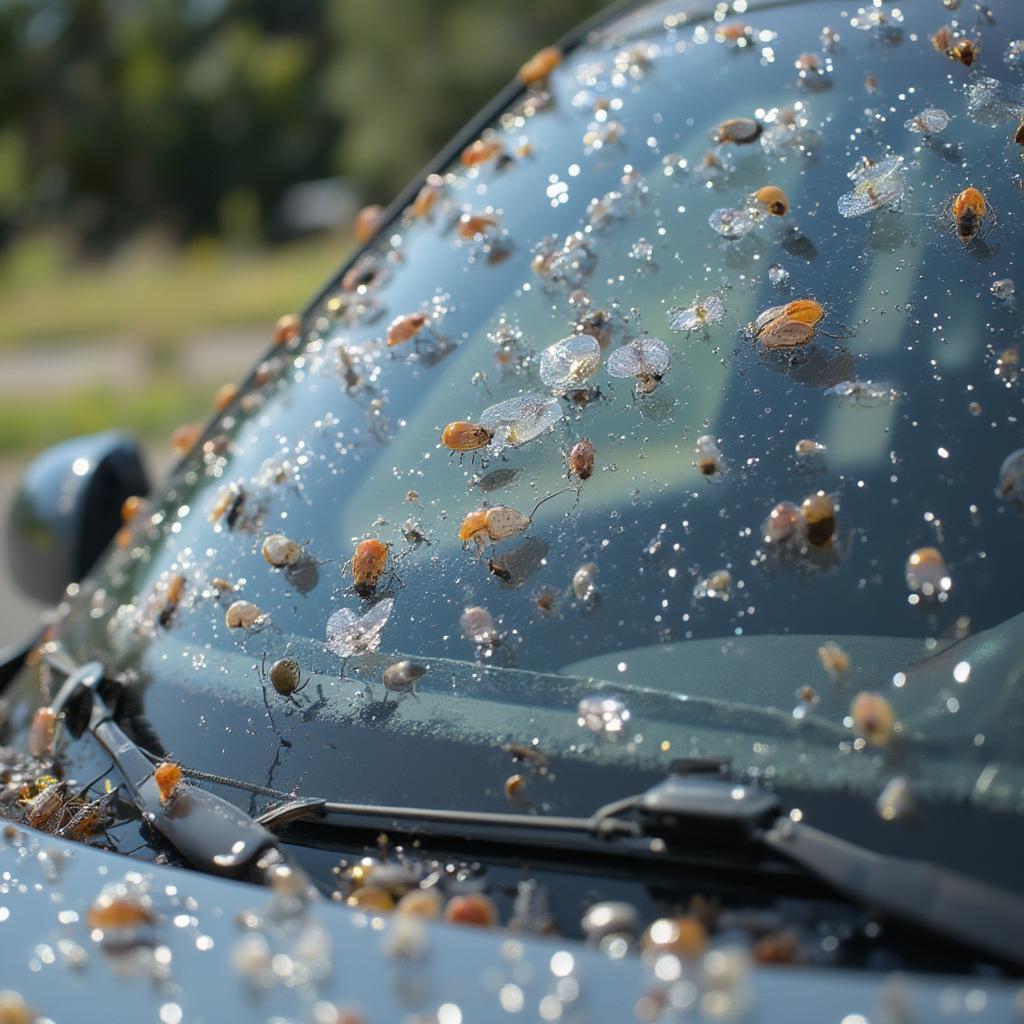Are Love Bugs Poisonous? This is a common question, especially during their swarming season. These small, black insects, often seen flying attached, pique curiosity and sometimes concern. Rest assured, love bugs are not poisonous. They pose no threat to humans or animals. This article delves into the fascinating world of love bugs, exploring their life cycle, behavior, and the truth behind the myths surrounding them.
Love Bug Myths Debunked: Separating Fact from Fiction
Love bugs, scientifically known as Plecia nearctica, are often misunderstood. One persistent myth is their toxicity. This isn’t true. They don’t bite or sting, and their bodies contain no toxins. The perceived “poison” likely stems from their acidic body composition, which can slightly damage car paint if left uncleaned. Another misconception is that they were created by a university experiment gone wrong. In reality, they are a naturally occurring species native to Central America and the southeastern United States. Read more about how long a love bug lives from our other article: how long does a love bug live.
Why Are Love Bugs Always Connected? Decoding Their Mating Rituals
Love bugs are known for their prolonged mating flights, which can last for several days. This behavior, while seemingly peculiar, is essential for their reproductive success. The male and female remain connected to ensure fertilization and maximize offspring. This constant connection has led to numerous myths, including the idea that they die while still attached. While they do remain connected for a significant portion of their adult lives, they eventually separate after mating. Find out more about their fascinating connection in our article: why are love bugs connected.
Are Love Bugs Harmful to the Environment? Exploring Their Ecological Impact
While not poisonous, love bugs can be a nuisance. Their large swarms can obstruct visibility while driving and their remains can damage car paint if not removed promptly. However, they also play a role in the ecosystem. Their larvae feed on decaying organic matter, contributing to nutrient cycling. As adults, they serve as a food source for birds and other insects.
How to Manage Love Bugs: Practical Tips for Dealing with the Swarm
Though harmless, love bugs can be a nuisance.  Love bugs on a car windshield Regularly washing your car during love bug season can prevent damage to the paint. Using a specialized bug remover or a mixture of water and baking soda can help loosen and remove the insects. For more detailed information on getting rid of love bugs, check out our guide: how do you get rid of love bugs.
Love bugs on a car windshield Regularly washing your car during love bug season can prevent damage to the paint. Using a specialized bug remover or a mixture of water and baking soda can help loosen and remove the insects. For more detailed information on getting rid of love bugs, check out our guide: how do you get rid of love bugs.
“Love bugs are fascinating creatures, often misjudged due to their unique mating behavior. Understanding their life cycle and ecological role can help dispel the myths surrounding them.” – Dr. Emily Carter, Entomologist.
“While love bugs can be annoying, their impact on the environment is generally positive. They are essential decomposers and serve as a food source for other species.” – Dr. David Miller, Ecologist.
In conclusion, are love bugs poisonous? The answer is a resounding no. While they can be a temporary inconvenience, they are not harmful to humans, animals, or the environment. They play a vital role in the ecosystem and their peculiar mating habits are a testament to the wonders of nature.
FAQ
- Do love bugs bite? No, love bugs do not bite or sting.
- What do love bugs eat? Adult love bugs primarily feed on nectar, while their larvae feed on decaying organic matter.
- Why are they called love bugs? They are called love bugs due to their prolonged mating flights, where they remain connected for extended periods.
- Where are love bugs found? Love bugs are primarily found in Central America and the southeastern United States.
- When is love bug season? Love bugs typically swarm twice a year, in spring and late summer.
- How long do love bugs live? Adult love bugs live for only a few days, typically 3-4 days.
- How can I protect my car from love bugs? Regularly washing your car and using a bug remover can help protect your car’s paint from love bug residue.
For further assistance, please contact us at Email: contact@daiduongtranhba.com, or visit our office at Michigan Ave, Suite 3100, Chicago, IL 60611, USA. We have a 24/7 customer service team available to help.

